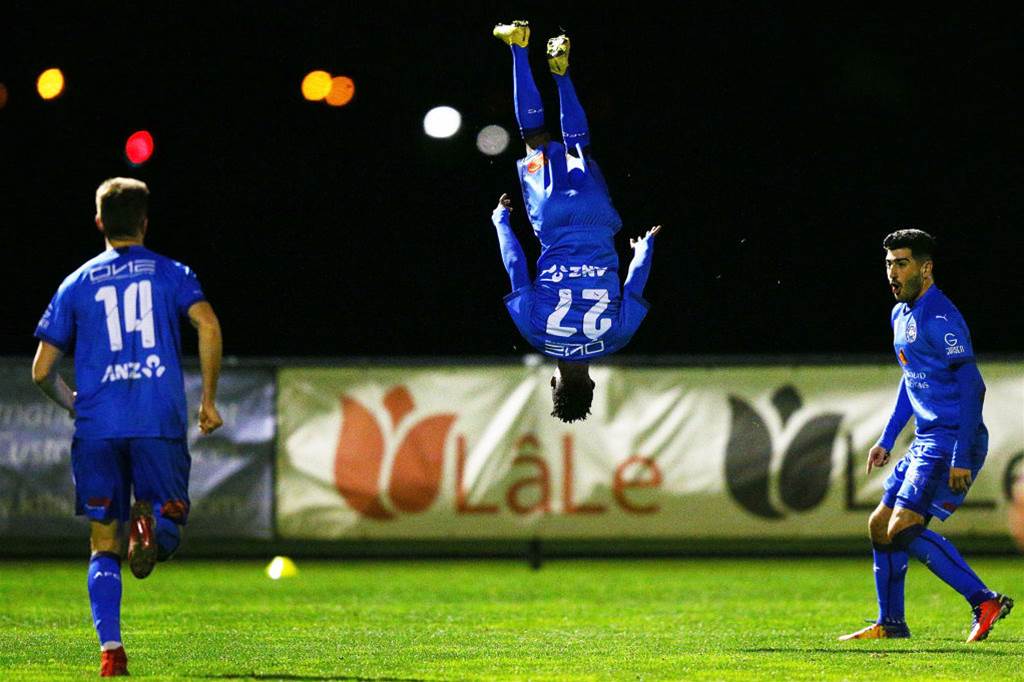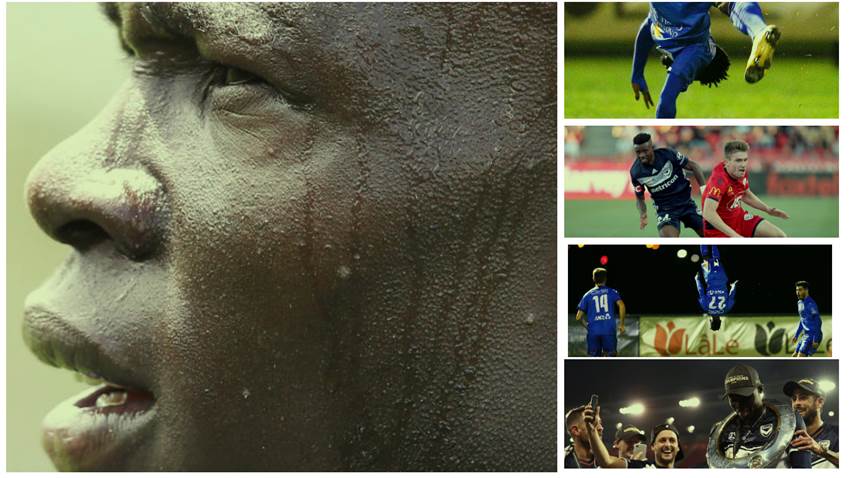Voluntarily covering the NPL could feel like pulling teeth, but pain’s merely a matter of perspective.
Despite their divergent personalities, their stories follow a similarly inspiring narrative.
“I came to Australia from a Tanzanian refugee camp and I’ve been here for the last nine years,” Kamsoba said.
“I was 12-years-old when I arrived in South Australia and started playing amateur football. I got into the Adelaide United youth setup a few times, first time at about 14-15.
“But things didn’t go so well, there were a lot of players and I was small and young. The coach told me ‘Go away, play some more first team games and I’ll get you when you’re ready.’
“So eventually I went back but the first-team coach had left. I came down and trialled with Melbourne City for a week, then Adelaide United called me and said they wanted me back.
“Then things didn’t go well again.”
Kamsoba was born into the aftermath of one of the world’s most notorious genocides, and after fleeing Burundi as an infant, spent the next eleven years in a Tanzanian refugee camp.
Like Athiu, opportunities had never come easily to Kamsoba. But after learning to play football using condoms filled with clothes, persistence became a natural and necessary virtue.
When we spoke, both footballers were training after work and playing matches on their weekends. While Athiu was living nearby the rustic terraces overlooking Heidelberg’s Olympic Park, Kamsoba’s uncle was driving him to Knights Stadium from Dandenong for each training session - a roughly two-hour commute.

Humility was a key concept for both – “to be honest, I like to think of myself as a very humble guy” – Athiu told me early in our conversation. Kamsoba was equally focused on selflessness – “every game I try to help the defender,” he beamed, showcasing a slightly rare attribute in the dog-eat-dog world of NPL football.
Both footballers believed it stemmed from the sacrifices their families had made so they could make it as professionals. Here, standing on a decrepit suburban pitch, was the only place I could truly relate to their story. While any conceited challenges I faced in becoming a football writer are non-existent in comparison to Athiu and Kamsoba’s, I too would have stood no chance were it not for the tireless, selfless help of my family.
Would anyone?
“I don’t feel like I made sacrifices, but I feel like my parents sacrificed a lot,” Athiu told me. “Leaving home to move to Australia, they left a lot of family to bring us to a better environment and give us better opportunities.
“Growing up they had to be on me at certain times, make sure I was eating right and not getting in trouble. They made a lot of sacrifices,” he repeated earnestly.
“I always look up to them for answers. Whenever I feel like I need to know something I go to them.”
In a country that was occasionally hostile and often confusing, football was the olive branch Australia offered. The pair were dedicating their lives to the beautiful game and it was only just beginning to give back.
Related Articles
.jpeg&h=172&w=306&c=1&s=1)
Langerak to bolster Victory's ALM title bid in January

Socceroo-in-waiting seals Championship deal













